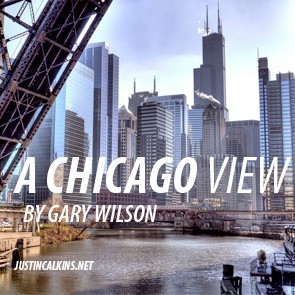
Gary Wilson
Oh, the way we talk about water and the Great Lakes!
Bottled water is now referred to as an “affordable portable lifestyle beverage” says an executive of the Beverage Marketing Corp.
Nestle Water raised (actually lowered) the marketing bar when its CEO said “millennials have grown up with water” the Financial Times reports.
This puffery caused Times columnist Lucy Kellaway to nominate Nestle Water for an award for the worst rebranding campaign of 2013. Kellaway chastised Nestle for linking water, a necessity for life, with “lifestyle.” This is the Financial Times (London) ragging on bottled water mind you, not some left-leaning, anti-capitalist blogger.
It takes a certain elitism and arrogance for these executives to justify bottled water so they’re an easy target.
What about the rest of us? How do we talk about Great Lakes water? What in our vocabulary deserves scrutiny?
Inspired by Kellaway’s calling out of the bottled water spin machine, I’ve compiled a short list of talking points that are past retirement age.
Their use isn’t in the league of the bottled water gaffs. But it’s time to relegate these phrases to the sidelines.
 The Great Lakes provide drinking water to 40 million people
The Great Lakes provide drinking water to 40 million people
Darn near every press release and position paper leads with or includes this statement.
It had a place 10-20 years ago when it was necessary to educate politicians about the value of the lakes. But I suspect it has become noise — unnecessary verbiage. When I read that statistic my eyes roll — not again — and I skip to the next paragraph.
Please Great Lakes communication types, give it a rest.
The Great Lakes are a “national treasure.”
Technically they’d be an “international treasure.” Remember Canada?
But the point is that “national treasure” is used so often that its value has been reduced to close to zero. It’s another phrase that people tune out.
Besides, here are other examples of national treasures — Elvis Costello, the Grateful Dead song Truckin, Andy Williams’ voice (according to President Reagan) and odd-eyed cats in Turkey.
I’ll stop, you get the point.
Partners, partnering and collaborating…..
…as in we’re partnering in a collaboration to improve water quality.
Gag, what does that mean? Problems abound.
Partner is a noun that has conveniently been turned into a verb. That’s always a red flag for trying to make something sound like more than it is.
True partnerships are rare.
From my business experience I know that the companies that wanted to be your partner were the ones receiving the check.
Most of the time you more or less work well with someone else, but you’re not partners. And do you really equate a business relationship to the one you have with your spouse or significant other, I don’t.
On the surface there is nothing wrong with partnerships and collaboration. Used wisely they can be a means to accomplish more than an individual or one organization could.
Sprinkling partner and collaboration like fairy dust on every project sounds impressive, but it can also be a crutch and allow process to take precedent over results.
Predictability isn’t always the best approach
I chatted over a beer recently with a top executive of one of the mega-environmental groups.
I mentioned that his local manager was refreshing because his language wasn’t predictable. He didn’t have a list of talking points that he repeated. While always professional, he could be unpredictable, candid and occasionally confrontational.
The executive told me that in a previous life he had worked for a state agency and he would listen to environmental groups give input at public hearings. He said almost without fail he could predict what they would say. The script and talking points were the same. They never varied. The groups gave him no reason to think a new thought about the issue.
I’ve often thought that the generally good work done by the Great Lakes Healing Our Waters Coalition was diminished by its predictable and repetitive message. Similar to a Big Mac or Budweiser, it never varies.
How many times can a Congressional appropriator hear that restoration is successful — every week there’s a success story in case you had any doubt — but more needs to be done and it will cost more later? It’s been the coalition’s singular message for years.
I tuned it out long ago.
“Let he who is without sin cast the first stone”
It’s easy to fall in to language traps and I plead guilty.
I became enamored with “unvarnished” this year because it connotes speaking frankly, a commodity in short supply.
But overuse diminishes its value and could be a sign of laziness. It’s top of mind so I may plug it in even though it might not fit. I’m still within bounds, but let me know if you see too many uses of unvarnished in my text this year.
Let’s see how it plays out is another one of my favorites for radio and TV commentary. I’ll try to watch it but no promises. It’s a good transition phrase when you get a cue to wrap it up.
My references here are at opposite extremes. The bottled water industry creates a self-serving reality to market and sell an unnecessary product to citizens of the wealthiest country in the world.
The protectors of the Great Lakes drone on using the same phrases ad infinitum. This means they fail to inspire those who need inspiration to help them do their work.
Great Lakes advocates are smart folks who are redeemable. They could change if they stood back and took an objective look. The bottled water industry, probably not.
Let’s hope for more credible messages from both in 2014.
